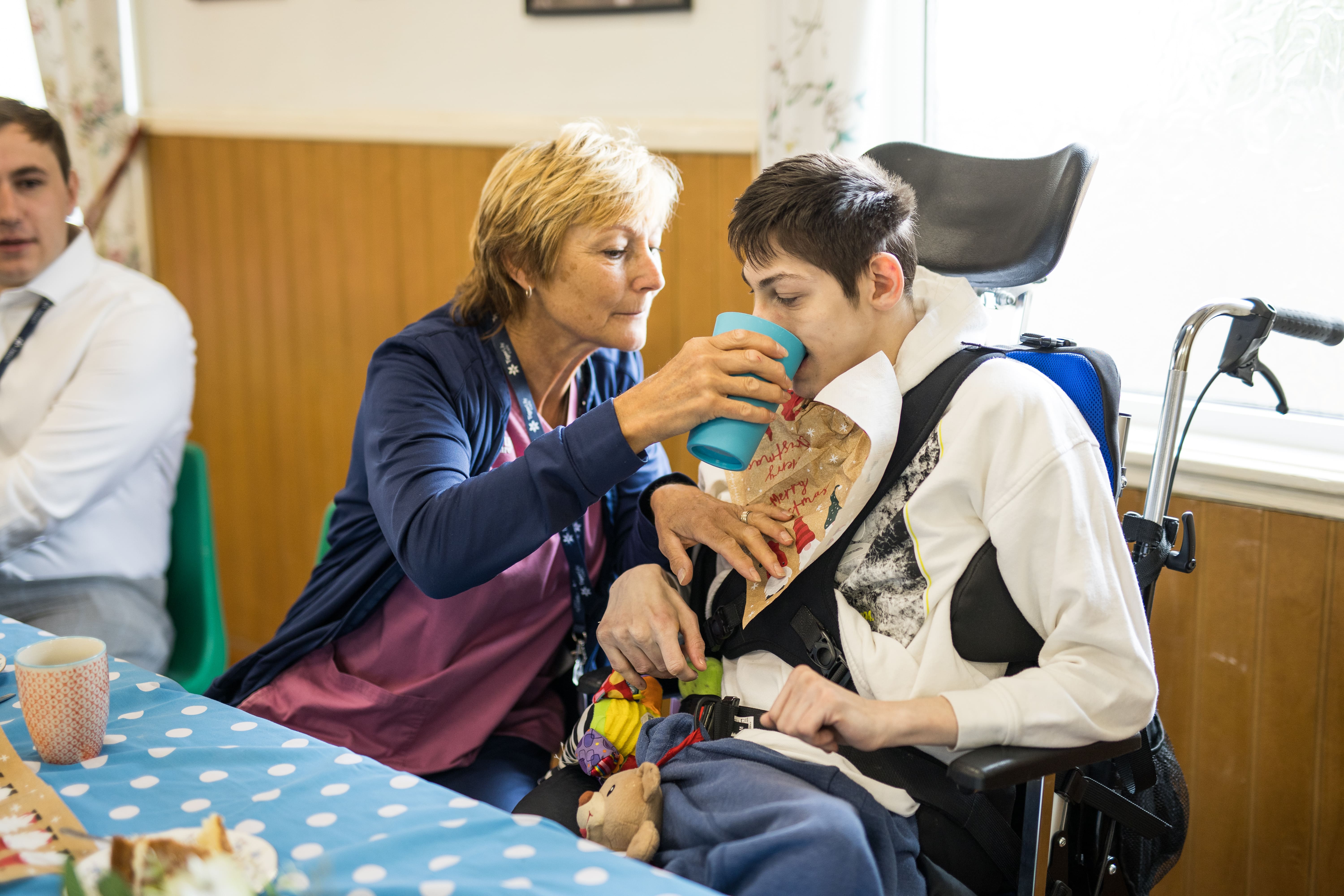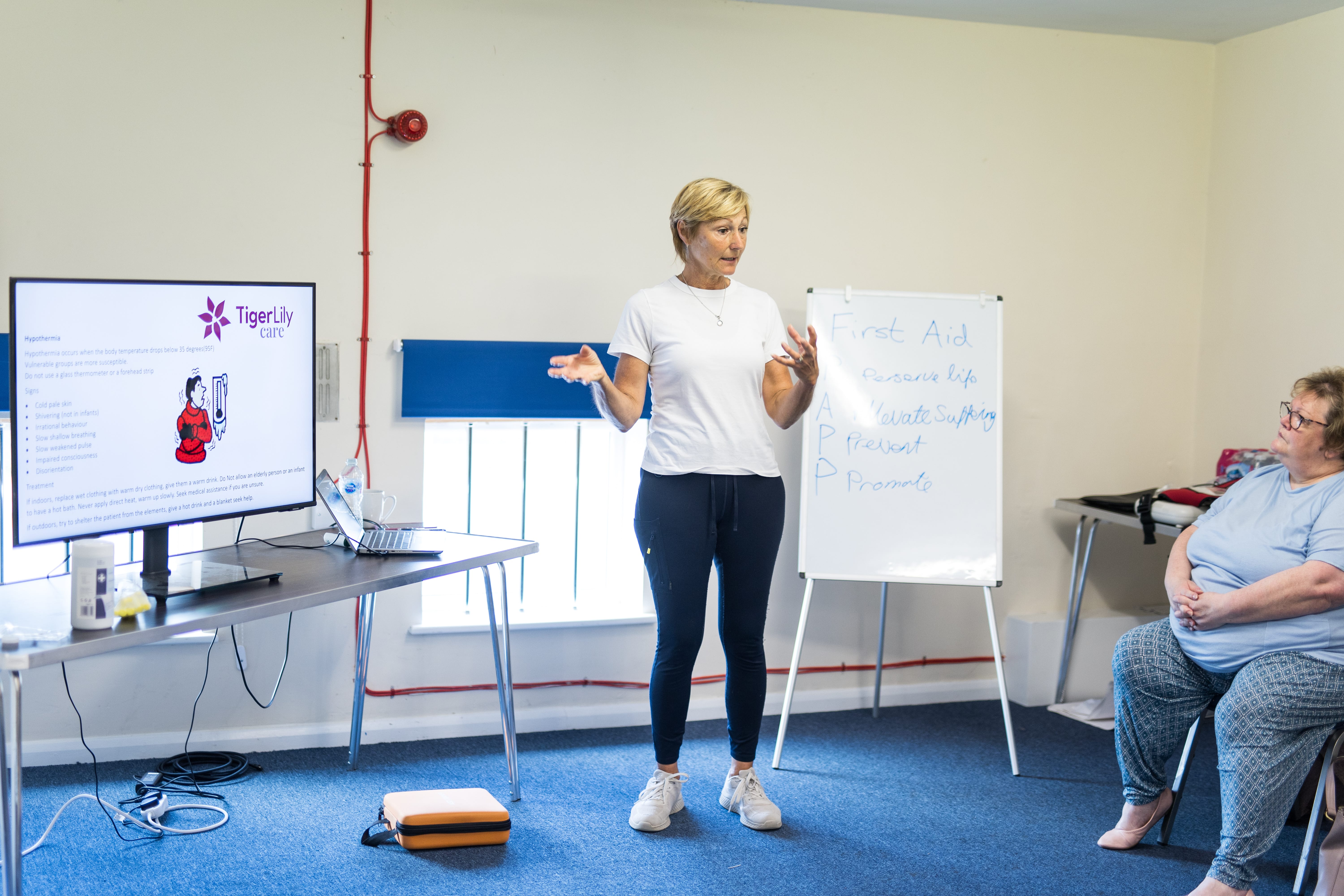As we get older, chronic health conditions can inevitably creep up on us, resulting in the need for more and more necessary medications. With advances in diagnosis and treatment options, the challenge of safely managing multiple medications at home is ever-growing.
Polypharmacy (being prescribed multiple medications) is increasingly common and represents a growing challenge for individuals, family members, and carers. As such, the importance of understanding the fundamentals of safe medication management cannot be overstated.
This blog will explore approaches to organising medications at home, learning how to store and sort your prescriptions correctly. We will also cover how to safely take multiple medications, as well as ways to access support from healthcare professionals when needed.
Understanding the Risks of Managing Multiple Medications
Before we take a look at strategies for managing medications at home, it’s worth taking a moment to understand the risks associated with inadequate medication management.
What is Polypharmacy?
Polypharmacy is the use of multiple medications by one individual. This can be a combination of prescribed, over-the-counter, and herbal medications. Polypharmacy is often necessary when it comes to appropriately treating a range of complex long-term health conditions, including:
- Diabetes
- Chronic obstructive pulmonary disease (COPD)
- Heart disease
- Cancer
- Kidney disease
- Stroke
However, polypharmacy can also introduce several risks, as drug interactions and schedules become more tricky to balance as the number of medications increases. As such, healthcare professionals take great care to weigh up the pros and cons of prescribing any new medicines.
Potential Risks of Poor Medication Management
When prescriptions are handled poorly, medication errors at home are likely to occur. Incorrectly organised medications can lead to potentially dangerous outcomes.
Drug interactions
When someone takes two or more medications, the effects of each can either be increased, decreased, or altered in an unwanted way. Because of this, healthcare professionals carefully select which drugs can and cannot be prescribed together.
Accidentally taking old medications (ones that the doctor has stopped prescribing), taking them at the wrong time of day, or taking interacting over-the-counter or herbal remedies without consulting your doctor first can all lead to unwanted adverse effects.
Missed doses
Missing doses of a medication can lead to under-treatment of health conditions, resulting in a worsening of health. Some medicines (such as certain antidepressants) can also produce unwanted side effects if the level of the drug in the body drops suddenly, especially if multiple doses are missed in a row.
Overdosing
Accidentally taking a scheduled dose more than once can produce unwanted side effects or even toxic damage to organs in the body. Certain medications are very tightly dosed and controlled for this reason, including:
- Opiate pain relief (morphine, tramadol, etc.)
- Insulin
- Blood thinners (including warfarin)
- Antiseizure medication
- Chemotherapy agents
Duplicate therapies
Several drugs share the same target and mechanism of action. For instance, there are several statins available that all work to lower cholesterol (atorvastatin, simvastatin, etc). When doctors change which drug they prescribe, it’s important to correctly dispose of the old medication to avoid accidentally taking both the new and old drug together, leading to an increased risk of unwanted side effects.
How to Sort Multiple Medications Effectively
In this section, we’ll take a look at some of our top tips for safely sorting medications at home.
Make a Comprehensive Medication List
The prescription notes attached to medications provided by the pharmacy can often be confusing and difficult to follow. You may find it helpful to write out a list of current medications that includes:
- All prescription, over-the-counter, and supplement medications you are currently taking.
- The dose and timing of each
- Any special instructions (such as if it should be taken with food)
Writing out your own medication list can be particularly helpful, as you can style it in a way that is easy for you to follow. You may wish to involve a trusted family member or professional caregiver to assist with this. Any list you create must be accurate and regularly updated. You should also bring this list to your health appointments as a valuable point of reference.
Use a Pull Organiser or Medication Management App
There are many solutions out there for people who want to improve their medication organisation. Common tools include:
- Weekly medication boxes - At the start of each week, tablets can be organised into medication boxes according to the day and time each medication needs to be taken.
- Pharmacy-provided blister packs - Many pharmacies offer a service to provide medications in pre-organised weekly blister packs.
- Electronic tablet dispensers - For individuals who prefer a tech-based approach, electronic tablet dispensers can be used to automatically dispense the correct medication at the designated time of day.
- Mobile applications - People who regularly use their phones may find it helpful to download an application that sends automated reminders when it’s time to take each medication.
Each approach has its pros and cons that must be considered. For example, weekly medication boxes rely on careful sorting and filling each week to prevent errors further down the line. These approaches should always be used in conjunction with a carefully curated list of medications and under the guidance of your doctor or pharmacist.
It is worth considering the expertise that a professional carer can provide to support the safe organisation and administration of multiple medications.
Safe Storage of Medications at Home
It’s important to remember that medications need to be stored safely out of harm's way.
Ideal Conditions for Medication Storage
Medications should be stored to prevent exposure to environmental factors. Keep medication away from heat, moisture, and direct sunlight. Consider which areas of your home are suitable for storing medications. For example, a steamy bathroom or a cupboard next to the oven is not an appropriate place to keep medicines.
Some medications have specific storage instructions, as stated on the prescription label or provided by your pharmacist. Insulin is a common drug that has a special storage requirement, needing to be kept in the fridge before it is first used.
Childproofing and Safety Tips
Medications should be stored out of reach of children and pets. It may be necessary to make use of lockable medication cabinets if required. People who care for individuals with more advanced dementia may also need to consider how to safely prevent accidental, inappropriate taking of medication by using secure storage methods. This should always be done in conjunction with the individual and their doctor.
Proper Disposal of Expired or Unused Medications
When medications have expired or gone unused due to a change in prescription, the old medication must be disposed of properly. Drugs should not be placed in a domestic rubbish bin. Instead, the easiest way to dispose of medication is to return it to any pharmacy, where it can be sorted and sent for destruction.
Strategies to Ensure Medications Are Taken Correctly
Alongside using tools like blister packs, it can be helpful to employ some medication management strategies in your daily routine.
Follow a Consistent Routine
One of the best ways to ensure that medication is taken correctly is to create a routine and stick with it. Take a moment to reflect on times during your day when you repeat the same activities. For example, you could time medication around:
- Having a morning cup of tea
- Brushing your teeth
- Eating meals
- Getting ready for bed
Remember to pay attention to any specific instructions each medication has for how to take it. For instance, you can’t schedule to take a medicine just before bed if it needs to be taken with a full meal.
Set Reminders and Alarms
Some people may find it helpful to set reminders and alarms on their mobile phone or home smart device. Devices like Alexa and Google Home can be programmed to voice medication reminders and send a message to your phone.
However, it’s worth remembering that these devices can fail (due to running out of battery, losing wifi, etc). A paper backup should always be available to use. Also, keep in mind that some individuals may not be sufficiently comfortable or proficient with technology to benefit from this approach.
Involve Family or Caregivers When Needed
Complex medication management is not always possible to do alone. People who are particularly forgetful or have a condition that causes memory impairment (such as Alzheimer’s) may need the support of others to take medications safely.
It’s important to fully involve the individual in any decisions about their care, including organising and administering medication. The person’s doctor can also assist with undertaking a formal assessment of an individual’s ability to manage medication and their need for support.
Conclusion and Takeaways
Medications are a vital component of managing a range of complex health conditions. Safe organisation, storage and administration of these medicines can help prevent unwanted effects or illness. Always put safety first in every step of medication management.
For further information on managing medications at home, consult your doctor or pharmacist, or consider seeking support from one of our expert carers.








